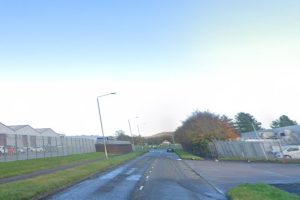A TRANSITION Board access to £100 million worth of funding to invest in skills and regeneration programmes has been set up in Neath Port Talbot to support the people and businesses affected by the proposed electric conversion of the borough’s Tata steelworks site.
It comes after announcements that the massive steelworks site in Port Talbot would be converted to run on electricity in the future, resulting in a potential loss of as many as 3,000 jobs.
The Indian-owned steel company recently published details of its agreement with the UK Government, to invest £1.25bn into the Port Talbot steelworks to install electric steel recycling furnaces and shut down its two primary steel-making blast furnaces.
It has led to concerns from unions that more than 3,000 jobs could be axed, as electric arc steel making, which involves recycling steel as opposed to making ‘virgin steel’, does not require as many members of staff.
In response the Tata Steel/ Port Talbot Transition Board has been set up with the aim of supporting “the people, businesses and communities affected by the proposed transition”.

A statement on Neath Port Talbot Council’s website read: “The Transition Board’s role will be advisory. The UK Government and TSUK will make up to £100 million available for interventions in the affected area, and the Transition Board will make recommendations for where that funding could be best invested.
“The £100 million funding will be in addition to the skills, employability and business support levers that the Welsh Government will use to help those affected. It will also be in addition to the support provided to affected people and businesses by the Department of Work and Pensions.”
The new Transition Board met for the first time on October 19, 2023, where it agreed on its ways of working, as well as its terms of reference and membership of the board.
The group will be chaired by David TC Davies, Secretary of State for Wales, with Vaughan Gething, Minister for the Economy of Wales, and Michael Gove, Secretary of State for Levelling Up, serving as deputy chairs.
Other members will include Henrik Adam, chair of Tata Steel UK, as well as the leader of Neath Port Talbot Council Steve Hunt, and Stephen Kinnock, who is the MP for Aberavon.
However, some people in the Port Talbot community say that given the massive amount of jobs on the line, more work should first be done to secure as many jobs as possible at the Port Talbot site before they are lost.
Tony Taylor is a former steel worker from Port Talbot and said: “At the moment any sort of investment in to the area will be welcomed but given the number of jobs we’re talking about losing I’m not sure it will be enough.
“When you talk about losing jobs at that scale, it isn’t just the 3,000 jobs that will be lost initially, but the wider impact it will have on the economy as well, with many local businesses set up to supply the steel works, and others relying on workers spending their wages in and around the borough. At the moment a lot of people are very angry and we want to see more talks carried out before jobs are lost.”
Mr Kinnock said: “Over the past month I have made it absolutely clear that the Tata Steel-UK Government de-carbonisation deal is unacceptable because it focuses narrowly on the electric arc furnace model, whereas it should also be ensuring that we continue to produce virgin steel in Port Talbot through low carbon technologies such as direct reduced iron.
“The EAF-only strategy will lead to far more job losses than is necessary, so I fully support Community and the other steel unions as they seek to persuade Tata to think again.
“But in the meantime it is vital that where there are job losses the £100 million that has been set aside for supporting the transition is spent wisely on behalf of the steelworkers of Aberavon and the wider community.
“I’ve therefore agreed to join the Transition Board, which will oversee the development of skills and regeneration programmes for the steelworkers who are going to be directly affected by the change that is coming. I will be straining every sinew to secure the best possible outcomes for the workforce, and for my Aberavon constituents.”
In a statement to the board, Neath Port Talbot Council leader Steve Hunt added: “The council believes that steel must continue to play a central role in developing our economy into the future.
“We have been working with Tata and other partners for many years now, through the City Deal and the South Wales Industrial Cluster.
We have worked together on new innovations aimed at securing the future of steel making and all of its associated industries here inPort Talbot.
“We believe that there are new and nationally important market opportunities in front of us, such as floating offshore wind. The prospect of being able to manufacture green steel here, on this site that can be turned into turbines that will generate green power at scale in the Celtic Sea and elsewhere is something we are very excited about.
“We look forward to seeing how this investment will not only secure existing market opportunities. We hope to see new markets exploited bringing with it well paid, sustainable jobs here in Port Talbot and the wider supply chain.
“It is for all of these reasons that I welcome the news that there will be investment in transitioning steel making from its current technologies to a greener alternative. But what is also clear is that there will be an impact on jobs, businesses and our wider community during the transition period.
“At a time when many people across our communities are experiencing hardship, we must all work together to minimise those impacts. We must also commit to a long term plan that will place our economy on a stronger and sustainable footing.
“I can assure you that the council will play a full and active role in helping to make this happen. But it will take all of us in this room to deliver a just transition – as well as our wider partners and the community itself.”














